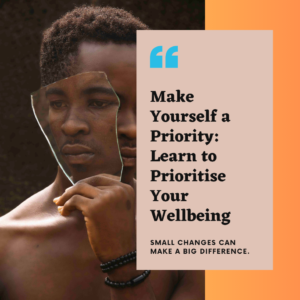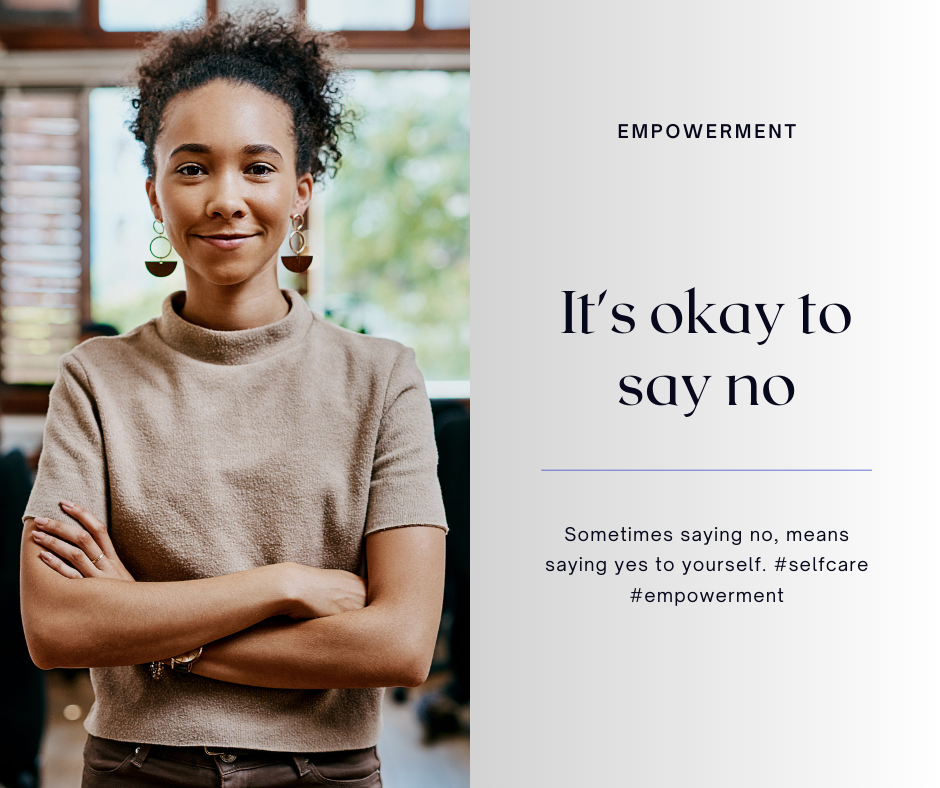In today’s fast-paced world, we often find ourselves juggling multiple roles and responsibilities, leaving little time for self-care.
We are often afraid to say no to others, whether it’s a work colleague, friend, or family member.
We worry about the consequences of refusing, such as hurting someone’s feelings or missing out on an opportunity.
However, saying no can be a powerful act of self-care that can free up time and energy for the things that truly matter.
In this article, we will explore why saying no is okay and how you can do it with kindness and confidence.
- The Power of Saying No
Saying no can be difficult, especially if you are a people-pleaser or fear rejection.
However, saying no can be liberating and empowering.
It allows you to prioritise your needs and desires and avoid burnout.
Saying no can also improve your relationships and communication skills.
When you say no, you are being honest with yourself and others about your limits and boundaries.
This can prevent resentment and misunderstandings in the long run.
- How to Say No Kindly and Confidently
To say no kindly and confidently, it’s important to be clear and concise.
You don’t need to justify your decision or apologise excessively. Be honest about your feelings and intentions, and offer alternatives if possible.
For example, instead of saying “I can’t help you”, try saying “I’m sorry, I can’t help you right now, but have you considered asking someone else?”
Use a firm but polite tone, and avoid sounding defensive or aggressive.
Remember, saying no is not a personal attack, but a decision based on your needs and priorities.
- The Benefits of Saying No
Saying no can have many benefits, including reducing stress and anxiety, improving focus and productivity, and enhancing creativity and innovation.
When you say no to the things that don’t align with your values or vision, you create space for the things that do.
This can lead to a more fulfilling and purposeful life.
Saying no can also improve your sense of self-worth and self-respect, as you prioritise your needs and boundaries.
- Overcoming the Fear of Saying No
If you struggle with the fear of saying no, you are not alone. It’s natural to fear rejection or conflict, but these fears can hold us back from living our best lives.
To overcome the fear of saying no, practice self-compassion and self-acceptance.
Remind yourself that saying no is not selfish or rude, but a necessary act of self-care.
Surround yourself with supportive and respectful people who respect your boundaries.
And, most importantly, remember that you are worthy and valuable, regardless of what others may think or say.
- Saying No and Just Enjoying Life
At Just Enjoying Life, we believe that saying no is a crucial part of self-care and living a fulfilling life.
By learning to say no kindly and confidently, you can create more time and energy for the things that bring you joy and meaning.
You can focus on your passions and goals, and collaborate with others on your own terms.
So, the next time you feel tempted to say yes to something that doesn’t serve you, remember that it’s okay to say no.
Your well-being is worth it.
In conclusion, saying no is a powerful act of self-care that can improve your well-being and relationships.
By saying no with kindness and confidence, you can prioritise your needs and boundaries, and avoid burnout and resentment.
Remember that saying no is not a personal attack, but a decision based on your values and priorities.
The fear of saying no is natural, but with practice and self-compassion, you can overcome it and enjoy a more fulfilling life.
At Just Enjoying Life, we encourage you to embrace the power of saying no, and focus on what truly matters to you!

Share with us below a time when you have stood your ground and said no.

